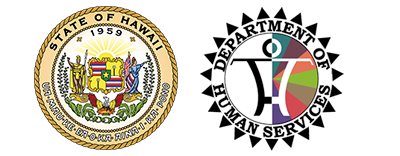Governor Enacts Measures Related to Kupuna, Housing and State Service Access
Posted on Jun 27, 2013 in NEWSGovernor Also Signs Health Transformation Bill
HONOLULU – Gov. Neil Abercrombie today signed House Bill 656, establishing the Health Care Transformation Program within the Governor’s office to advance the transformation.
“Improving health and the quality of care while bending the cost curve are among my administration’s top priorities,” Gov. Abercrombie said. “Addressing these concerns requires a new systematic approach that affects health care statewide.”
HB656 (Relating to Health Care Administrative Uniformity) also sets specific responsibilities for creating a strategy and timeline for statewide healthcare transformation that includes developing standards to measure quality and costs, reducing administrative burdens for providers and insurers, and improving and expanding the use of information technology to support transformation.
The measure explicitly gives the Governor the authority to obtain information by consulting with any stakeholders, individually or in groups, as part of the foundation for transformation. This is crucial since the healthcare sector cannot make systematic, coordinated changes of its own volition because:
- antitrust issues preclude many kinds of concerted group action that are not mandated and/or supervised by government authority;
- while insurers, hospitals, and provider groups can all make sweeping changes within the scope of their own organizations, these changes may have little effect on the rest of the system; and
- private sector health organizations agree on improving health, quality and cost, but implementing strategies without regulation or at least industry coordination is difficult because such organizations may have mixed motivations in a competitive environment.
“The cost of health care affects every resident and business in Hawaii,” said Beth Giesting, the state’s Healthcare Transformation Coordinator. “While health insurance premiums in Hawaii are relatively modest and offer good coverage, the inflationary trend – on average about 6 percent per year – results in wage stagnation and limited opportunities for business expansion.”
More than any other entity in Hawaii, the state is directly impacted by the effectiveness of the healthcare system as it purchases coverage for nearly 40 percent of the population, and that percentage will grow when new eligibility provisions and requirements under the federal Affordable Care Act result in Medicaid expansion. Med-QUEST programs now cover more than 20 percent of the state’s population with a budget of nearly $2 billion. The Hawaii Employer-Union Health Benefits Trust Fund covers nearly 15 percent of the population (Its annual budget is $523 million and it carries an unfunded liability of $14.4 billion). The state budget also supports the Hawaii Health Systems Corporation, emergency and trauma services at other facilities, behavioral health care, federally qualified health centers, and more.
In a separate signing ceremony, Gov. Abercrombie also signed the following DHS measures:
Kupuna Bills
Individuals 65 years or older account for 14.7 percent of Hawaii’s population, which makes Hawaii the eighth in the nation in terms of the greatest percentage of older Americans. The following bills provide protections and resources needed for Hawaii’s growing kupuna population.
- HB529 (Relating to Care Homes)
- HB120 (Relating to Health)
- SB106 (Relating to Aging)
- HB398 (Relating to Human Services)
- SB102 (Relating to the Elderly)
SB102 specifically requires that financial institutions report instances of suspected financial abuse of an elder directly to the appropriate county police department (via 911) and the state Department of Human Services via Adult Protective Services:
Oahu – 832-5115
Kauai – 241-3337
Maui – 243-5151
East Hawaii – 933-8820
West Hawaii – 327-6280
Other Health-Related Bills
These bills protect consumers, ensure qualified professionals provide medical treatment, and help families who have loved ones suffering from a severe mental illness obtain treatment.
- HB847 (Relating to Enforcement Tools to Improve Patient Safety)
- SB1074 (Relating to Physical Therapy)
- SB310 (Relating to Mental Health Treatment)
Housing Bills
The following bills address housing needs and recognize that one size does not fit all when finding a solution to end homelessness.
- SB515 (Relating to Housing)
- HB536 (Relating to Public Housing)
State Service Access Bills
These bills eliminate barriers to state services and assist Hawaii residents who are deaf, blind or have limited-English proficiency so they can fully participate in the community.
- HB266 (Relating to Language Access)
- HB1430 (Relating to Human Services)

